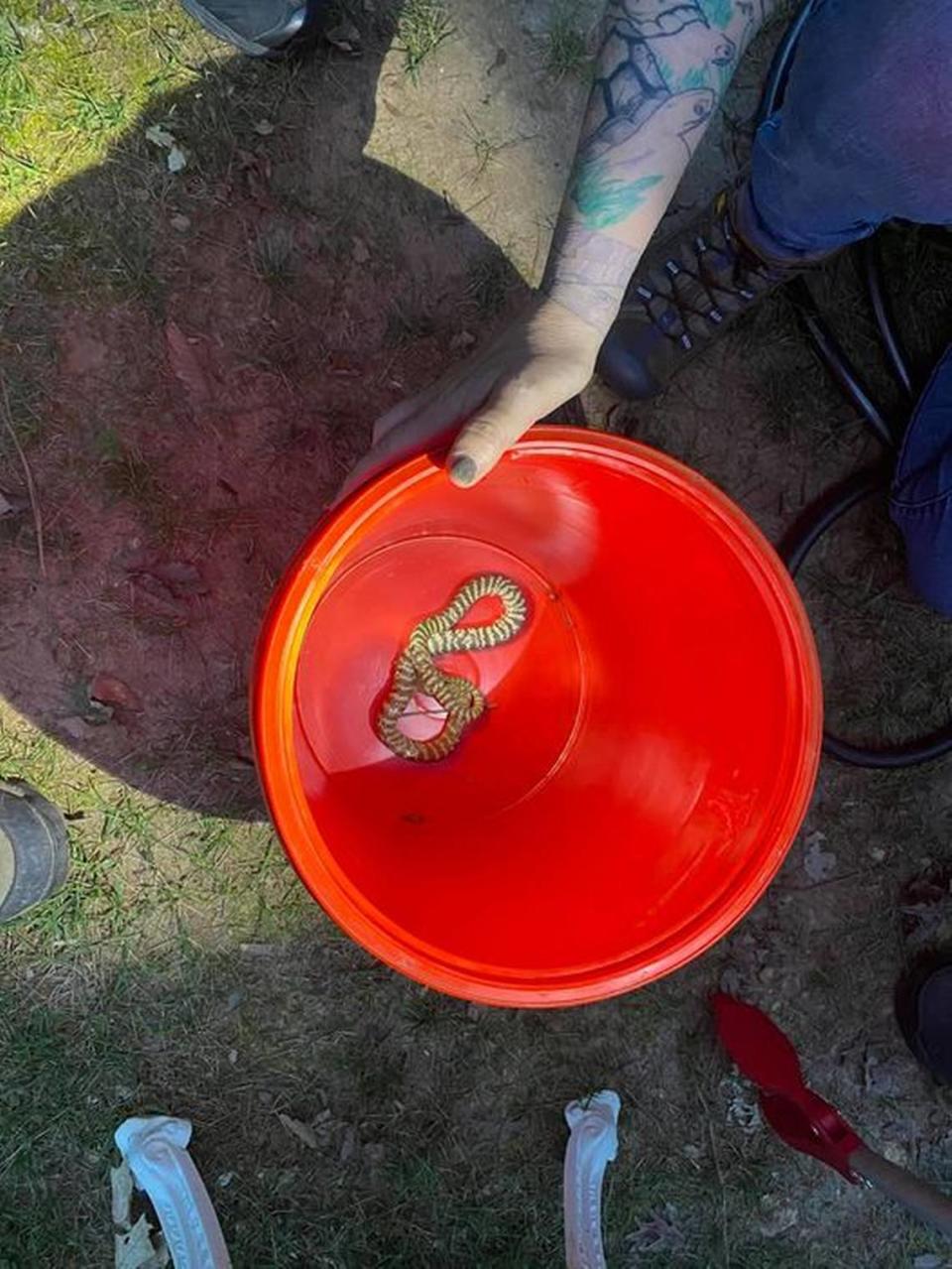Just weeks after cobra’s escape, Raleigh could see new rules on dangerous animals
Raleigh could see new rules restricting wild, dangerous and venomous animals as soon as next month — a response to the pet zebra cobra that escaped its North Raleigh home and sent neighbors into a two-day panic recently.
In a virtual Town Hall forum Thursday evening organized by state and city leaders, City Councilman David Knight said he expects a draft ordinance regulating wild and dangerous animals by August.
Elected in 2019, Knight said the loose cobra prompted more feedback from his constituents than any other in his tenure.
“I’ve had no one in my district say, ‘Oh, let’s allow this to continue,’ “ Knight said at the forum, adding that the potential ordinance would focus on public safety.
Cost of the cobra ordeal
Raleigh’s spitting zebra cobra drama started on June 28, when a 911 caller reported seeing the snake outside a house on Sandringham Drive.
Two days later, Raleigh animal control officers and other snake experts captured the cobra on a glue trap after it had slithered inside a crack.
The ordeal cost the city nearly $10,000 in personnel, gas and supplies, according to Raleigh police.

Along the way, news emerged that the cobra’s 21-year-old owner, Christopher Gifford, had a large collection of venomous snakes in the basement of the North Raleigh home where he lives with his parents. Gifford often displayed the snakes outdoors, out of their cages, in his popular TikTok videos. Gifford had been bitten by his own green mamba only months before.
Gifford faces 40 misdemeanor charges — one for failing to report the cobra had escaped from his house a half-mile away in November — though his lawyer told the N&O that animal control officers had approved all of his pets’ enclosures.
Under North Carolina law, as long as a non-native venomous snake is confined to a locked and clearly labeled cage, and a set of emergency instructions is kept handy, nothing prohibits anyone in Raleigh from keeping, buying and selling them at will.
Raleigh’s code, meanwhile, addresses the sale of baby chickens, but not snakes.
During Thursday’s forum, N.C. state Sen. Wiley Nickel, a Raleigh Democrat whose district includes the escaped snake zone, said legislators have started to consider toughening up its snake rules.
A good starting point, he said, would be prohibiting non-native, venomous snakes. Six types of venomous snakes are found in North Carolina, including the copperhead common around Raleigh.
“These are not animals that anyone should keep as pets,” Nickel said.
Berger doesn’t see snake bills advancing
But Senate leader Phil Berger, an Eden Republican, told reporters after the Senate session Thursday that he did not think the Senate would soon pass any bills about cobras.
“I don’t see us getting into that snake pit,” Berger said. “For me there’s just a general reluctance not to get too involved in animal-related legislation.”
While snakes dominated Thursday’s discussion due to the recent cobra scare, talk often turned to big cats and other exotic animals. Gail Thomssen, North Carolina director for the Humane Society of the United States, said the state is one of four nationwide that places few or no restrictions on possessing dangerous wild animals.
Greg Lewbart, a professor with N.C. State University’s College of Veterinary Medicine, said venomous snake bites are rarely fatal.
“The most dangerous animal on Earth is the mosquito,” he said.
While snakes such as the zebra cobra pose a risk, Lewbart said he hoped officials would resist over-legislating the problem. Venomous snakes should be handled by professionals with proper training, and never alone.
“There is a place for venomous snakes in human care,” he said. “But it’s not in the home.”
Knight, the Raleigh councilman, asked if snakes are capable of forming bonds with humans.
“I think so,” Lewbart said, adding, “When I lost Roscoe, my snake ... years ago, I still haven’t looked at the autopsy report.”
Staff writers Dawn Baumgartner Vaughan and Brooke Cain contributed to this report.

